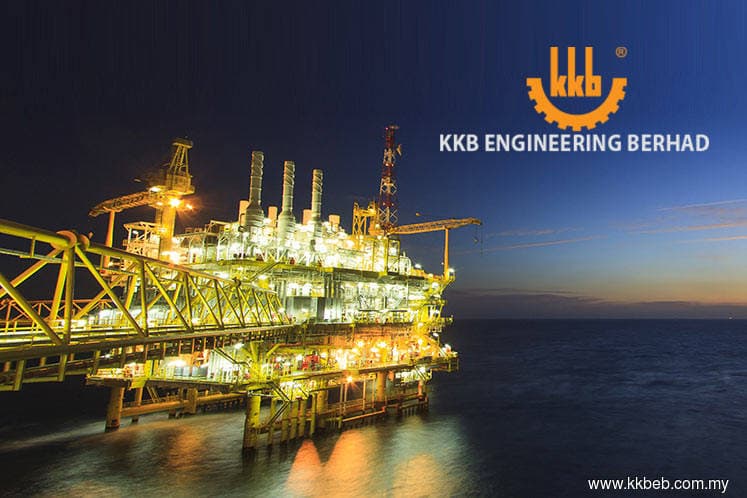
This article first appeared in The Edge Financial Daily on October 23, 2019
KKB Engineering Bhd
(Oct 22, RM1.40)
Upgrade to buy with a higher target price (TP) of RM1.52: KKB Engineering Bhd has successfully clinched several awards with a sum of RM60.9 million. The main job comprises construction and completion of a water supply project, covering areas from Kota Samarahan to Sebuyau in Sarawak.
The two packages won were dubbed Packages 3A and 3B, which we believe form part of the water grid project’s Phase 1. KKB has also received orders for additional supply of mild steel concrete lined pipes and specials, placed by Laras Jaya Engineering Sdn Bhd, Cipta Wawasan Maju Engineering Sdn Bhd and Cityon Development Sdn Bhd.
Packages 3A and 3B are mainly construction contracts, with the former running immediately (from October 2019) until completion in December 2020. Meanwhile, the latter runs from end-October 2019 until February 2021. Supply orders are to be delivered in stages within the first half of 2020.
KKB’s new job replenishment in 2019 currently stands at RM277.4 million, already ahead of our expectation of RM250 million for this year. As last reported, we believe KKB’s outstanding orders amount to RM700 million, enough to keep it busy until financial year 2021 (FY21).
The bulk of the orders was derived from the Pan Borneo Highway Sarawak job awarded in July 2017. With tenders still ongoing, we would not be surprised if KKB hits the RM300 million mark for new orders this year.
Despite the risk, the management sees this situation as manageable with construction works progressing as usual. While we note that works would likely continue with no major interruptions, we make some adjustments to our work progress assumptions (to be conservative). Accordingly, we revise down our earnings forecasts for FY19 and FY20 by 6% respectively.
According to a news source, KKB’s OceanMight Sdn Bhd has bid for three contracts for fabrication of offshore structures worth about RM355 million. We believe the outcomes will likely be known early in the first quarter of 2020 (1Q20) as the bids were submitted in 3Q19. Two of the bids are for engineering, procurement, construction and commissioning of fixed offshore structures, while the third is a sub-contract package.
OceanMight was awarded and completed on time four fabrication contracts for offshore structures worth about RM250 million between 2014 and 2017. The most recent completion was for Petroliam Nasional Bhd’s (Petronas) D18 Phase 2 project, delivered 10 days ahead of time. Being one of the two companies in Sarawak awarded frame agreements by Petronas, its track record in the segment is recognised.
Gaining market share in the segment of oil and gas (O&G) offshore facility construction and major onshore fabrication is not a stroll in the park, but KKB’s OceanMight has proven that its move is turning fruitful.
We upgrade our call to “buy”, with our TP adjusted to RM1.52, implying a price-earnings ratio of 21 times FY20 earnings per share. Despite the earnings forecast revision, our TP is pegged at a higher price-to-book value of 1.2 times (+1 standard deviation of the one-year average), reflective of: i) the group’s growth prospects in the O&G engineering segment; ii) earnings margin recovery; and iii) niche expertise benefitting from the state’s long-term master plan.
KKB is at an advantage to benefit from the recent allocation in Budget 2020, with a large chunk being channelled into Sarawak’s water supply project. As the sole water pipe manufacturer in Sarawak with a track record in construction works, the facets of KKB’s expertise are well set to be tapped.
The group’s entry into the O&G segment should not be overlooked as it continues to strengthen its track record and market share. Central to this are the milestones achieved thus far that help support long-term growth. From a valuation perspective, we think its current share price presents an attractive entry point.
Downside risks to our call include: i) slower-than-expected progress billings; ii) surprise margin contraction; and iii) a slowdown in job flows. — MIDF Research, Oct 22